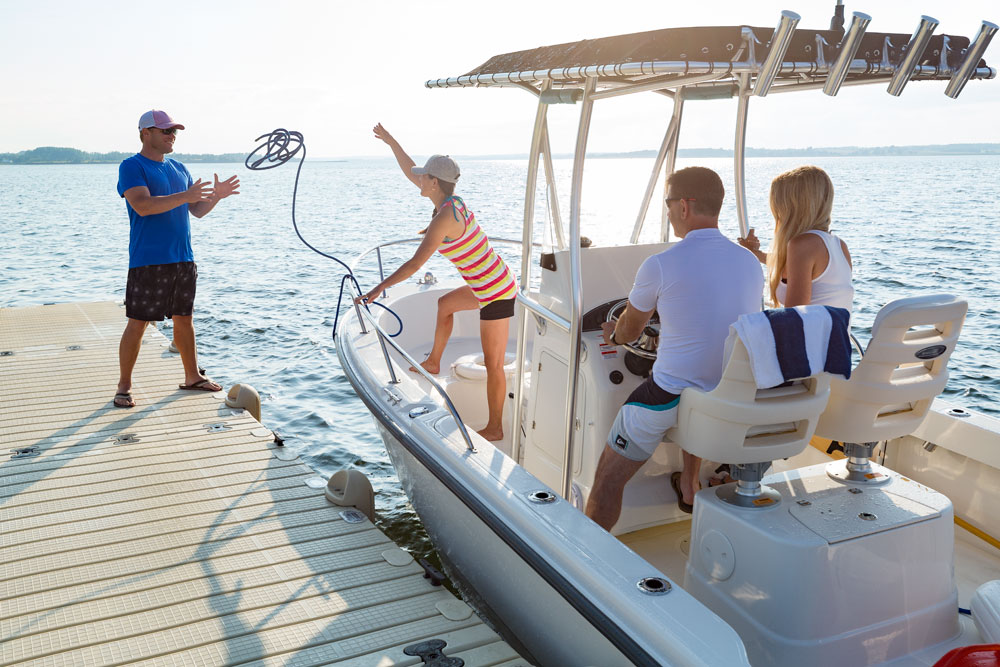With Florida and the Carolinas still reeling from the destruction left behind by Hurricane Ian, many boat and yacht owners are realizing that their own vessel is one storm away from being a total loss. If you live in an area that is prone to hurricanes, now is the time to start making preparations for your own vessel.
Table of Contents
Are Large Vessels Like Yachts Safe From Hurricane Damage?
If you own a particularly large vessel, you may be wondering if it is actually safe to leave it docked during a hurricane. The answer is that it depends on the size and type of vessel as well as the dock itself. For example, a small yacht or sailing boat is much more likely to be damaged by high winds and waves than a large motor yacht. That said, if a large enough storm surge comes through your area, even the largest yachts will not be safe. There are countless videos and photos of damage to huge yachts and even ships left well inland after storm waters recede, the scenes are particularly scary in Fort Meyers that faced the brunt of the storm. If you are unsure about the safety of your vessel, it is always best to evacuate the area and ride out the storm at sea.
The Best Way To Keep Your Vessel Safe Is To Evacuate The Area
Of course, the best way to keep your vessel safe is to evacuate the area entirely. If you have advance warning that a hurricane is headed your way, the best thing to do is to get out of its path. This may mean sailing to a nearby port or marina in a safe location or even just anchoring offshore until the storm has passed. If you do choose to ride out the storm at sea, make sure you are prepared with plenty of food and water as well as all the necessary safety gear.
Can You Ride Out A Storm At Sea?
If you do decide to stay at sea during a hurricane, there are some things you need to know in order to stay safe. First of all, it is important to have a plan and be sure everyone on board knows what to do in case of an emergency. It is also important to have plenty of supplies on hand, including food, water, and medicine. You should also have a way to communicate with the outside world in case you need to call for help. Finally, make sure your vessel is securely anchored and that all loose objects are secured so they don’t become projectiles in high winds.
If You Cannot Evacuate Your Yacht – Follow This Checklist
You should already have a list of best practices for docking and leaving your boat unattended, but in the event of a hurricane, there are some extra things you need to do to prepare your vessel.

- First, make sure all of your windows and hatches are securely shut and that all loose items on deck are secured.
- Remove any canvas or other fabric that could catch wind and tear.
- Check all your lines and fenders and replace anything that is worn or damaged.
- Consult with a yacht mechanic or electrician to make sure your bilge pumps are in good working order and that you have backup batteries for them in case of a power outage. A good yacht technician can also advise you on the best way to protect your vessel’s engines and other systems. They can also advise you on any repairs that should be handled by a yacht refit. this can be easily done in a dry-dock.
- If it’s been more than a year since your last hull survey, schedule one to check for any potential damage that could make your vessel more vulnerable in a storm.
- Ensure that you have plenty of fuel on board as well as any other supplies you might need in case you are stranded at sea for an extended period of time.
- If you have a dinghy, make sure it is securely tethered or stowed away.
- Make sure all lines and fenders are in good condition and properly secured.
By following these simple tips, you can help ensure that your vessel will weather the storm safely. Remember, it is always better to be safe than sorry when it comes to hurricanes.
Make Sure Your Insurance Policy Covers Hurricane Damage
Before a hurricane hits, it is important to make sure your insurance policy covers damage from hurricanes. Many policies will not cover damage caused by flooding or high winds, so be sure to read your policy carefully. If you are unsure about what your policy covers, contact your insurance company and ask them to explain it to you. It is also a good idea to take photos or video of your vessel before the storm so you have proof of what it looked like in case you need to make a claim.
No one knows when the next big hurricane will hit, but if you live in an area that is prone to them, it is important to be prepared. By following these tips, you can help ensure that your vessel is safe and sound when the next storm comes.




